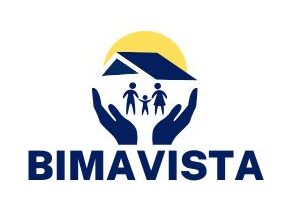Marine Insurance
Marine insurance covers loss or damage to ships, cargo, and transport-related liabilities during transit by sea, air, or inland waterways.


Frequently Asked Questions
1. What if my cargo gets damaged due to poor packing?
Damage from insufficient packing is excluded under all cargo insurance policies.
2. Can I get coverage for delays?
Nope. Delays and their consequences are not covered under standard marine policies
3. What if goods are stolen during transit?
If theft is a result of events covered under ICC A or B (like a vehicle accident or natural disaster), it’s generally covered. Pure theft without another triggering event may not be.
4. What’s the difference between Open Policy and Open Cover?
- Open Policy is a legal contract with declarations required.
- Open Cover is more informal and often used by frequent traders. Each shipment gets a stamped certificate later.

Marine Insurance Made Simple: Cargo & Hull
When goods are on the move, across land, sea, or air, things can go wrong. That’s where marine insurance steps in. Despite the name, marine insurance doesn’t just cover sea transport. It protects goods in transit by road, rail, air, sea, or even post. It also covers the ship itself, through something called hull insurance.
- Marine Cargo Insurance
What does it cover?
It covers loss or damage to goods while being transported, from cement to electronics, to diamonds. Whether it’s international trade or domestic delivery, cargo insurance has your back.
Who takes the policy?
Either the seller or buyer, depending on your sales contract (like CIF or FOB).
Where does it apply?
From the time the goods leave the seller’s warehouse to the moment they arrive at the buyer’s doorstep.
Types of Cover: ICC A, B, and C (Institute Cargo Clauses)
Clause | Coverage |
ICC C (Basic) | Covers big events like fire, vehicle crash, ship sinking, jettison, etc. |
ICC B (Mid) | Everything in C + earthquake, bridge collapse, sea water entering ship, etc. |
ICC A (All-Risks) | Covers everything except what’s explicitly excluded (like poor packing, delays, nuclear risks, etc.) |
Common Marine Cargo Policy Types
- Specific Policy: For one-time shipments.
- Open Policy: Year-long policy with all shipments declared monthly/quarterly.
- Open Cover: Continuous protection with premium adjusted from a cash deposit.
- Duty & Increased Value Insurance: For covering customs duty or increased market value at destination.
- Marine Hull Insurance
What’s “hull”?
It’s just another word for a ship or boat.
Hull insurance covers the physical vessel itself, against damage from accidents, collisions, and even wars.
Covers:
- Passenger ships, cargo vessels, barges, fishing boats
- Vessels under construction
- Machinery, stores, and even the expected freight income (Shipowners or vessel operators often get paid freight charges for transporting goods. If the ship is damaged or lost in transit, they might lose that freight income insurance can cover that loss.)
Types:
- Voyage-based: Valid for one trip
- Time-based: Valid for a specific duration (usually 1 year)
Note: Extension of Time-Based Marine Hull Policies
Time-based hull insurance (usually one year) can be extended, but only with the insurer’s approval. They’ll typically consider the ship’s condition, claim history, and future voyage plans.
If approved, it’s done via a new policy or an endorsement. You may need updated inspection reports, and the premium may be revised.
Important: Insurers usually do not extend cover for vessels that are outdated, being scrapped, or decommissioned (i.e., taken permanently out of service).
Key Terms You Should Know
- CIF + 10%: This is how sum insured is calculated: Cost, Insurance, Freight + 10% for extra cushion.
- Freely Assignable: Cargo policies can be transferred to someone else, like your buyer.
- War & Terrorism Cover: Unique to marine and aviation insurance, available as an add-on.
Want to make sure your goods arrive safe, no matter the mode of transport?
Marine insurance is the must-have invisible shield.
